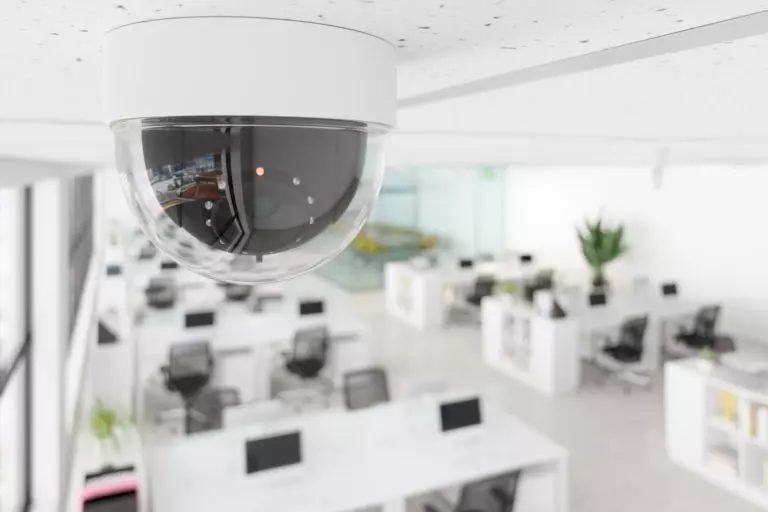Managed IT
Where IT Services Meets Physical Security

Data security isn’t the easiest thing in the world to plan for, especially if your organization doesn’t have any dedicated security professionals on-hand. While protecting your data with traditional methods, like passwords, firewalls, and antivirus, is important, what measures are you taking to make sure a thief isn’t just walking into your office and taking off with your technology?
If you don’t have guards or security cameras in place, you’re more likely to suffer from a physical security breach, which can be just as devastating as a digital breach. Ask yourself how comprehensive your security really is. Why not use it as an opportunity to protect your business’ physical assets? With the threat landscape the way it is these days, it’s no surprise that organizations focus on the digital aspect of security, but some people are just old-fashioned and would rather infiltrate a business the traditional way.
It’s also important to keep in mind that not everyone is going to be the perfect employee. You might have a couple of bad apples in the bunch that want to steal business resources. In this case, digital security might not mean much, but physical security like locked doors and so on could make all the difference in keeping them from making decisions that are bad for both themselves and your business.
Basically, you need to take a dual approach: You need to consider both digital security and physical security for the following reasons:
- Data access is restricted to those within your organization, but even the best employees make mistakes.
- A tiered approach means that employees only have permission to access data they need for their immediate work responsibilities.
- Knowing who is accessing devices and data, as well as when they are doing so, can help you to resolve issues as they occur.
Let’s consider a couple of scenarios where it helps to have physical and digital security. Access control limits who can access specific information, so if the data is corrupt or missing, then you’ll have a clear idea of who is responsible for it. On the off-chance that it wasn’t the employee, then you know their credentials have been stolen and abused by a cybercriminal. Access monitoring is helpful for this, as it can also determine when someone is accessing data, as well as where they are located. Thus, if someone from another country is accessing data in the wee hours of the morning, it’s likely that you have a digital security problem on your hands.
As far as physical security goes, consider what would happen if you didn’t keep track of the people who access the sensitive parts of your business. If something were to come up missing, having a cloud-based security system with digital playback as well as complete access control with logs, would let you go back and check to see exactly who had access, and what the situation was before so that you can get to the bottom of the problem.
Therefore, to make sure that you’re keeping your data as secure as possible from all avenues of attacks, we recommend you work with the folks from Thrive. We can help you ensure security. To learn more, contact us today.
